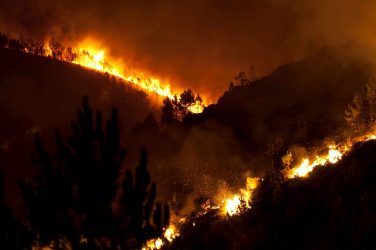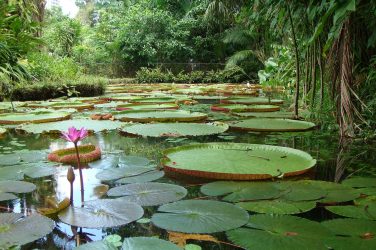 Home to the vast Amazon, Brazil has reduced its deforestation rate by more than 70 percent since 2003, but Latin America’s largest country is still losing the equivalent of two football fields of rainforest every minute.
Home to the vast Amazon, Brazil has reduced its deforestation rate by more than 70 percent since 2003, but Latin America’s largest country is still losing the equivalent of two football fields of rainforest every minute.
The country aims to reduce net new deforestation to zero by 2030.
Key tools in the fight are new satellite monitoring technologies, rural titling schemes to encourage small-scale farmers to stop cutting down trees and action against illegal loggers, according to officials from Brazil’s environment enforcement agency (IBAMA).

“Every act of deforestation has an economic cause,” IBAMA official Jair Schmitt informed.
“We are creating strategies to convince people not to do it (illegal logging) in the first place.”
Here are some facts about Brazil’s battle against deforestation:
* About 90 percent of deforestation is caused by illegal logging, according to IBAMA.
* Four satellites monitoring the Amazon from Brazil, the United States, China and India detect more than 100,000 points of illegal logging every year.
* The rate of deforestation peeked in 2004 at about 27,700 square kilometers of forest lost, an area larger than Israel.
* Promoting secure land tenure, especially for indigenous people, is key to protecting forests, according to Brazil’s environment agency.
* Last year Brazil lost more than 6,200 square km (2,394 sq miles) of rainforest, an area larger than Brunei.
* In 2015, environment enforcement officials made more than 4,000 arrests and seized 91 trucks, 115 chainsaws and the equivalent of 2,000 truckloads of illegally harvested wood.
* More than 70 percent of land affected by illegal deforestation is used for cattle ranching, according to IBAMA.
* Deforestation in the Amazon is responsible for 30 percent of the greenhouse gas emissions in Brazil, according to campaign group Greenpeace.
This article and information were collected by the Thomson Reuters Foundation, the charitable arm of Thomson Reuters, that covers humanitarian news, women’s rights, trafficking and climate change.










